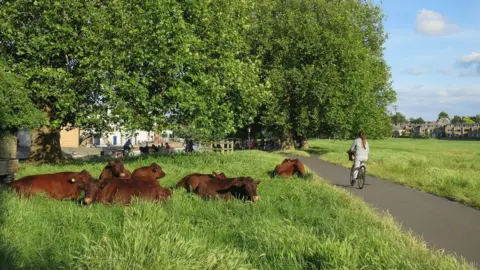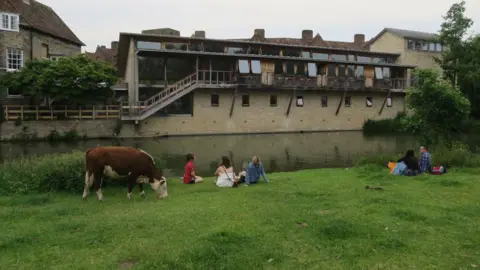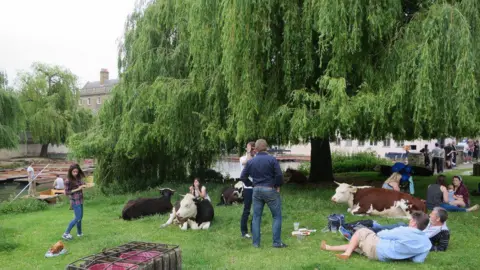Uncertain future for Cambridge's urban cattle
 Hugh Venables/Geograph
Hugh Venables/GeographThe centuries-old sight of cows wandering a city's commons could be a thing of the past, according to a farmer.
Angelika von Heimendahl, one of four farmers who graze cattle on Cambridge's riverside commons, said planned council budget cuts would make it "impossible" to continue the tradition.
Cambridge City Council is consulting residents on whether to pass the cost of an out-of-hours animal rescue service on to graziers.
Simon Smith, the executive councillor for finance and resources, said: "At a time when the council is under pressure to increase charges or reduce services, we are asking whether it's right that Cambridge taxpayers subsidise graziers in this way."
 Hugh Venables/Geograph
Hugh Venables/GeographHe added: "We are not proposing to remove the cows from the commons – the question about grazing in our wider public budget consultation relates only to the out-of-hours element of the service the council provides for the four graziers."
Cows are a regular sight on council-owned green spaces in Cambridge during the April to October grazing season.
They can be seen roaming on Midsummer and Stourbridge commons, Coe Fen, Lammas Land and Sheep's Green.
A team of council-employed animal rescuers, known as pinders, help if a cow gets into difficulty - such as getting stuck in the River Cam.
 Hugh Venables/Geograph
Hugh Venables/GeographThe council said it received £4,000 in rent from the four graziers, who have about 90 cattle in total, but spent £28,000 annually on supporting them.
The authority needs to reduce its net spending by about £6m over the next year-and-a-half.
It has sent a questionnaire to residents, asking about areas where it could cut costs, including the question: "Should the council pass responsibility for funding the out-of-hours grazing management service to those who are allowed to graze their cattle on the city's commons?"
Ms von Heimendahl said she loved bringing her 40 to 50 cows to graze in the heart of Cambridge each year, but warned the season just gone could be the last.
"It's quite an unusual setting," she said, adding: "It's our most expensive grazing."
Ms von Heimendahl said her insurance bills were already more expensive on account of risk factors, such as traffic and dog walkers.
"I can't say to my customers, 'you're paying three times as much for our beef' - I'll just put the cattle somewhere else."
Ms von Heimendahl said the council's questionnaire was "not fair", as people would miss the cows if they did not return.
"Once it's gone you'll never be able to get it back."
The council's questionnaire is open until 4 December.
Follow Cambridgeshire news on BBC Sounds, Facebook, Instagram and X.
